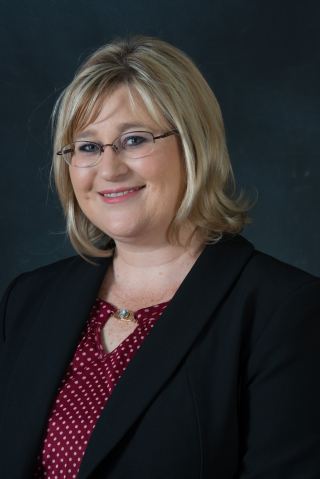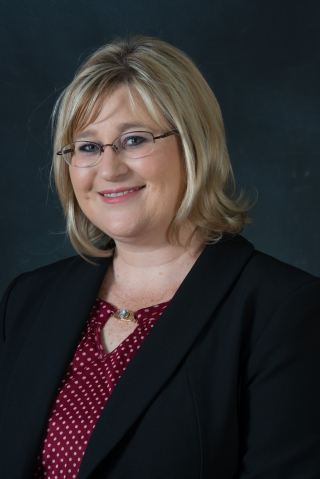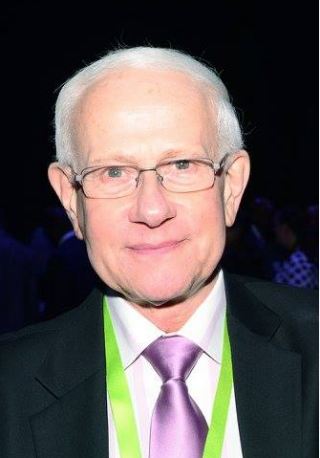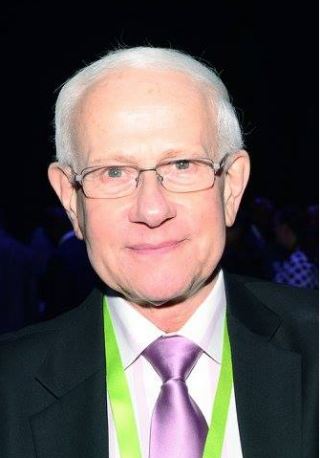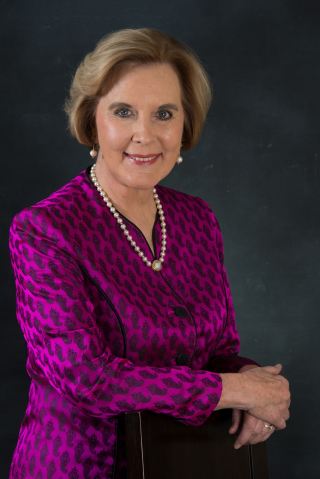CQ Is The New EQ For Executives
By *Michelle Moss, Director: Assessments at Signium Africa
Second only to emotional intelligence (EQ), cultural intelligence (CQ) is fast becoming one of the most in demand skills for executives in today’s culturally diverse world of business. The growing need for CQ is just one of the consequences of globalisation.
It’s true that companies are setting up more bases in foreign countries than ever. But their own societies are simultaneously becoming more culturally diverse, as foreign citizens migrate in search of better career opportunities and lifestyles. This means that culture is no longer a minor concern for executives. It’s a strategic imperative, and high-CQ leadership is needed to intelligently address this trend. So what is cultural intelligence? And is it possible to develop it in your executive team? The simplest and most used definition was developed by researchers Ang and Van Dyne in 2008, as “the capability of an individual to function effectively in situations characterised by cultural diversity.”
They also suggested that CQ is structured in four dimensions, namely, metacognitive, cognitive, motivational, and behavioural CQ. These have been adopted, more or less, in subsequent research and can be summarised as follows. Metacognitive CQ is “an individual’s level of conscious cultural awareness during cross-cultural interactions”. Cognitive CQ is “knowledge of norms, practices and conventions in different cultures that has been acquired from educational and personal experiences”. Motivational CQ is the “capability to direct attention and energy towards learning about and functioning in situations characterised by cultural differences”.
Finally, behavioural CQ is the “capability to exhibit appropriate verbal and non-verbal actions when interacting with people from different cultures”. In summary, executives must be aware of cultural differences, understand them, be willing to learn more, and act in relation to that understanding. What the above establishes in no uncertain terms is that CQ is not an innate competency. It can be acquired through training and, most importantly, exposure to the culture in question.
The benefits of increased CQ are becoming more obvious by the day. Most CEOs agree that as technology takes over many traditional business functions, success will be defined by how well people interact with each other. They also agree that diverse management teams foster innovation because they bring important cultural perspectives to the table.
However, differences often breed conflict and companies who fail to foster CQ may find themselves unable to manage that diversity. In fact, CQ and innovation are closely correlated. Consequently, they risk losing their competitive edge and corporate sustainability. According to a survey by the Economist Intelligence Unit (EIU), 70% of international ventures fail because of cultural differences. Another source reveals that 90% of executives from 68 countries say that cross cultural management is their toughest challenge.
Culture is becoming so critical to business that in some organisations, astute CEOs are heading up their diversity and inclusion practice groups. It is in every business’s interest, whether they operate locally or internationally, to nurture CQ in their enterprise, especially in their executives and C-suite. If that critical talent cannot be developed in house, it should be acquired externally through executive search.
*Michelle Moss is a Director: Assessments at Signium Africa (previously Talent Africa), a leading South Africa-based executive search and talent management company servicing sub-Saharan Africa.
Website: www.signium.co.za
Tel: +27 11 771 4800
Career risk mitigation – the way to go for corporate high flyers
Career risk mitigation – the way to go for corporate high flyers by Michelle Moss* (Signium Africa: www.signium.co.za) 2019 Obsolescence. It happened to VCRs. It also happens to executives, even high flyers; especially the tunnel-vision variety that obsess about the job on hand.
Obsolescence no longer takes decades. It can happen at pace as technologies change and businesses react to new legislation, heightened competition and more demanding customers. Forward-thinking executives increasingly realise they have to be fit for purpose today and in five years’ time. Obsolescence is a career risk and like any risk can be managed by putting proper mitigation strategies in place.
Talent search and management companies – so-called corporate head-hunters – face increasing calls from individuals for a heads-up on changing competency requirements. Often, the request comes from the mid-life CEO, the high achiever who took a leadership role aged 45 and is determined to be in place (or to have moved on to bigger and better things) by the time he or she is 55. Competency-focused future-spotting is driven by the desire to mitigate the risk of a stalled career. However, parameters widen almost immediately.
Reference to relevant literature like the World Economic Forum’s ‘Future of Jobs Report 2018’ and the work of the MIT Initiative on the Digital Economy indicate that personal competencies are inextricably linked to the corporate future. The business or industry vision invariably shapes the personal quest for continuing relevance by individual executives.
A global player like Riverwaves (a world leader in bespoke competency-based HR solutions) is close to these developments. Alexandra Pascu, Riverwaves’ GM - Middle East and Africa, notes: “Customised competency models drive business strategy while delivering benefits across the board - at individual, HR department and organisational levels.”
According to studies on the statistical validation of competency models**, the tangible return on investment includes a 63% reduction in staff turnover through increased employee satisfaction (attributable to greater clarity on performance expectations), a 19% improvement in employee performance and a 12.5% rise in sales and profits (a by-product of competency-based training). Adoption of a bespoke competency model enables organisational vision and values to be translated into employee behaviour.
According to Pascu, the corporate embrace of competency modelling has been accompanied by a global increase in demand for in-house competency training for line managers and talent professionals. So, we see shared focus on future-ready skills by both the organisation and its people (including those in the C-suite).
Individuals looking to avoid personal obsolescence increasingly find themselves working in a de facto partnership with organisations that are just as eager to stay current and relevant. The result doesn’t have to lead to a total immersion in new technologies. We may find ourselves working alongside robots and co-bots while dealing with digitisation and artificial intelligence, but very human attributes will make us special and keep us on top.
The World Economic Forum believes workforces will become even more diverse (multi-racial, multi-cultural and multi-generational with greater female representation). Orchestrating the input of ‘gig’ workers, freelancers, short-term project teams and consultants will be vital as structures become more flexible. Such scenarios help explain a quick competency to-do list suggested by MIT’s Erik Brynjolfssons. He advises us to put our focus on: o Creativity o Emotional intelligence (interpersonal skills, teamwork and leadership) o Passion for our work Apparently, love never goes out of style.
Not even love for what you do.
-- ENDS --
*Michelle Moss is a Director at Signium Africa (previously Talent Africa), a leading South African-based executive search and talent management company servicing sub-Saharan Africa. www.signium.co.za **Meta-analysis study reported in “The economic value of emotional intelligence competencies and EIC-based HR programmes”, Lyle Spencer. In Cherniss, C. and Goleman, D. eds. The Emotionally Intelligent Workplace: How to Select for, Measure, and Improve Emotional Intelligence in Individuals, Groups and Organisations. San Francisco, CA: Jossey-Bass/Wiley 2001. Spencer, Lyle, “Competency Model Statistical Validation and Business Case Development.”www.inscopecorp.com/resources-papers-statistics.aspx, 2004.
Website: www.signium.co.za Tel: +27 11 771 4800 Issued By: Tale Spin Media & Marketing Zelda Williams 082 461 0689 or Gillian Schmid 082 960 3233 This email address is being protected from spambots. You need JavaScript enabled to view it. This email address is being protected from spambots. You need JavaScript enabled to view it.
The painful burden women achievers never talk about
By Mosima Selekisho, director at Signium Africa (www.signium.co.za)
International Women’s Day (8 March) has a provocative theme this year – Balance for better and encourage action. Presumably, balance is currently poor and action is needed for women to reach their goals. Most would agree with this assessment and IWD commentators will doubtless interrogate ‘the usual suspects’ –cultural norms, patriarchy, resistance to change and the supposed failure of some women leaders to do more to uplift other women.
The cry that top women don’t do enough has become strident in recent years. I am well placed to judge. As a so-called head-hunter for executive talent, I interact with women at the top of large organisations and with a new generation of female go-getters. Women on the way up often complain senior female colleagues do little to help while those who have made it will sometimes admit as much.
Why don’t they? Conversations over several years suggest the reasons go beyond demands on time or disinclination to lend a hand on the basis that ‘nobody helped me so why should I smooth the way for this newcomer?’ Top women find it difficult to help because they themselves are wounded and live with a lot of internal pain. This is never admitted. One characteristic of top achievers is that they put on a good front. They always seem in control. This mask never slips. Perhaps it should. The pain is inevitable. Women give of themselves and live every day with issues affecting husbands and partners, children and family members.
Thoughtful, giving women carry unseen burdens, especially in Africa. The scrapes of children at school, financial obligations when you’re the biggest earner in an extended family, a spouse’s career difficulties, the problems of kids at university, even police enquiries affecting members of the wider family ... all these issues and more have to be handled day by day. The woman who supposedly has it all is expected to solve it all. That can mean anything from helping a sibling quit substance abuse to paying the legal fees of a partner facing litigation. What can women do about it? First, look in the mirror and confess the professional front has become a mask. Admit you have been carrying internal pain for years.
You might even be embittered by the thoughtlessness of others and their assumption that you will always cope. This gives you a chance to release the pain. Those who have gone along this road say honest discussion with those close to you gives the best chance of a pain-free future. The blame you cast on those around you will be replaced by deeper understanding while those close to you will realise they can’t simply add to your burden.
You also have a life. Women released from private pain have more time for colleagues. Greater rapport leads to greater willingness to help. Upliftment of others is natural after that. Wounded women find they also achieve career growth. The focus falls on blind-spots and getting the wider team to work toward a single vision. The top achiever begins to see areas in which she can also improve. Carrying burdens makes you strong, but you eventually stoop under the weight and see just one step at a time. You only see the big picture and help others when you put the burden down.
*Mosima Selekisho is a Director of Signium Africa (previously Talent Africa), a leading South African-based executive search and talent management company servicing sub-Saharan Africa.
-- Ends --
Website:www.signium.co.za
Tel: +27 11 771 4800
Issued By: Tale Spin Media & Marketing
Zelda Williams 082 461 0689 or Gillian Schmid 082 960 3233
This email address is being protected from spambots. You need JavaScript enabled to view it. | This email address is being protected from spambots. You need JavaScript enabled to view it.
Leadership going up a gear
Leadership going up a gear by Mosima Selekisho* director at Signium Africa (www.signium.co.za)
Corporate leadership in South Africa is being redefined. A ‘safe pair of hands’ is still required, but increasingly the focus is shifting to greater dynamism. At CEO level, more and more organisations are looking for go-getters who deliver results at pace. The change has been evident for some time but has reached critical mass in recent months as economic prospects have improved and private sector companies have sensed that opportunities for meaningful growth are at hand. Until recently, the incumbent CEO was often seen as the school principal who made sure everyone did their homework and stayed on top of their assignments.
This is changing at many firms. They have faced an economy in limbo for long enough and don’t want their own business to be locked in neutral forever. The demand is for an energetic motivator who does not waste time on formalities and drives hard for discernible results. In the past, the C-suite was characterised by emphasis on processes and detail. Research could be painstaking. Strategic deliberations might take months. Mistakes were avoided.
Costs were tightly controlled. But fast action to exploit fleeting opportunities was rarely seen. In contrast, the new priority when top talent is being sought is for an action man (or woman) who can turn strategy into reality without delay. The newcomer is expected to be technically accomplished, and relative youth is seen as an asset.
Industry outsiders may well make the shortlist, especially if a strong technically adept team is already in place. Some boards of directors are happy to press the ‘fast forward’ button, but still require the reassurance that solid foundations will not be compromised. In this scenario, they may specify a go-getter CEO who will be expected to work with a senior team capable of providing balance and continuity. Alternatively, the board may prefer to appoint a youngish operations officer, known for dynamism and results orientation. In these circumstances, the COO’s job is often beefed up to include a strategic dimension.
The incentive for the incoming COO is that the scene is clearly being set for the newcomer to take the top job once initial dynamism is tempered by greater acquaintance with company culture. In all scenarios, the new CEO or member of the leadership team is expected to be on top of digital developments and new media platforms. The days are gone when CEOs regarded digital devices and communication as something their PAs sorted out.
Feedback following the placement of this new generation of CEOs is largely positive. Many organisations are ripe for reinvigoration and a rapid mood change can be achieved. However, one shortcoming has been noted. The go-getter looks for results rather than consensus. Therefore, listening skills may require work. The public sector has yet to embrace the need for more aggression and dynamism at the top.
A deliberate ‘team player’ is the standard requirement. However, SOEs know times are changing and sometimes a preference is expressed for ‘a new face without baggage’. The good news is that a fresh breed of leaders is emerging and is fully capable of optimising the potential for a new beginning within major organisations … private or public.
*Mosima Selekisho is a Director of Signium Africa (previously Talent Africa), a leading South African-based executive search and talent management company servicing sub-Saharan Africa. www.signium.co.za
If you want to get ahead get a pet!
By Gusti Coetzer, director at Signium Africa www.signium.co.za
Pets! Who needs them?!
You do; especially if you’re a rising executive hoping to de-stress and stay healthy while achieving better work-life balance. Furry friends also help you empathise and develop your emotional IQ – soft skills that may be essential to success in a senior team.
Pet ownership can also be a plus point during job interviews as well-informed main board directors are apt to sneak in a surprise question about you and your pets. It’s not just an oddball question to probe your softer side. The benefits of pet ownership are becoming more widely known and it’s good to know whether a top candidate ticks the right pet ownership boxes.
New data give paws, sorry, pause, for thought.According to one US survey, 93% of top executives grew up with a pet and 78% partly attribute career success to childhood pet ownership. Survey respondents say having a pet taught a sense of responsibility and helped them show empathy.Later in life, walking the dog helped them relax and come up with business ideas. Pet ownership also helps these executives connect with colleagues who also own pets.
Various surveys spotlight a pet’s knack of de-stressing owners and the ability of pets to “spread laughter and positivity”.One US study (the Human Animal Bond Research Initiative) quantifies many benefits. For example, pet owners save an estimated $11.7 billion a year in visits to the doctor while the 20 million American owners who walk their dogs five times a week keep obesity in check and save $149 million in healthcare.Many respondents credit pets with helping their work-life balance. Laptops and smart devices can merge home and office into one. The danger is that the executive never stops. But a pet can force you to take a break.
Similarly, workaholics who live at the office attest to the life-changing properties of pet ownership. Having a dog or cat waiting at home gives you a reason to call it a day.
Researchers increasingly focus on quite specific medical benefits.They have found that pet owners tend to have healthier hearts and feel less depressed. When you own a pet, blood pressure and heart rates return to normal faster after a stress test. Performance under stress also improves.Apparently, simply stroking your pet can lower your blood pressure and cholesterol.In a nutshell, if you’re animal crackers you’re less likely to crack up at work. That’s got to be good news for pet-friendly decision makers and the businesses they lead.
*Auguste (Gusti) Coetzer is a director of Signium Africa (previously Talent Africa), a leading recruitment company based in South Africa offering executive head-hunting and leadership consulting - servicing sub-Saharan Africa. www.signium.co.za
Executive retrenchment becoming the new normal
Executive retrenchment..becoming the new normal By Auguste (Gusti) Coetzer* - www.signium.co.za
November 2018
No job is safe, no future secure. That’s the new normal as executives in both the private and public sectors confront a disturbing reality – retrenchment. Executive head-hunters are today witnessing an upsurge in the number of senior candidates who are in the job market for one reason only: recent or imminent retrenchment. The development is not purely local. These days, international candidates with quality CVs often test the South African waters after being blindsided by retrenchment. The drivers are fast-changing technology, tough economic conditions and belt-tightening by private companies and public services. Cost savings are substantial when ‘tall poppies’ are cut.
How should executives react to an environment in which seniority is no safeguard and delayering of organisational structures ensures some top managers, advisers and professionals will be redundant? First, never assume ‘this can’t happen to me’. You may have good qualifications, with good relationships in place, but you can still be thrown under the bus when economic pressures mount and operational losses pile up. With this in mind, begin preparing for retrenchment years in advance. It should be central to personal forward planning. Keep networks, your skill set and friendships in good repair. You don’t want to be the executive who phones old contacts out of the blue, desperate for a favour.
The unspoken reaction to avoid is ‘I’ve not heard from you in years and now you phone me because you want something’. Engage in community or charity work. You meet new people and create contacts outside your industry and profession. You also demonstrate you are a well-rounded person with a sense of social responsibility – ticking an important box when future employers look at the sort of person you are. When developing wider networks or entrenching relationships, be sure your associates are people of integrity. Even a passing connection with unsavoury characters can come back to haunt you. However, no matter how well you prepare, retrenchment always comes as a shock. Self-esteem may take a knock. Emotions come into play. But it is important to proceed logically and methodically. Consult the internet for lists of things to do when facing retrenchment. Some tips may be irrelevant. Others are useful thought-starters.
Check your contract of employment, your insurance cover and income protection policies. Protect your financial position as far as you can. Amend your lifestyle. Cut needless extravagance. Take time for reflection. Where do you go from here? What about an entrepreneurial route? Update your resumé. Consult talent search professionals. Finding a top job may take time. Obtain the best possible assessment of prospects in your field and your situation. Write down your objectives. You might want to remain in your current industry or might prefer radical change, even relocation to a new country. Be mindful of your age should you consider emigrating. Don’t dwell on the past. Be future-focused. Don’t sit and fret. Try to relax and recharge the batteries. Never hide from reality. Share your situation with family, friends, peers, coach, therapist and associates. Listen to suggestions. Stay alert for leads. Retrenchment is not the end of the world. It can be a stepping stone to better things.
This may sound glib, but it’s true … for those who are well prepared, well advised and well placed to spot new opportunities.
*Auguste (Gusti) Coetzer is a director of Signium Africa (previously Talent Africa), a leading recruitment company based in South Africa offering executive head-hunting and leadership consulting - servicing sub-Saharan Africa. www.signium.co.za
Website: www.signium.co.za
Tel: +27 11 771 4800
Shadow director jeopardy stalks SA advisory boards
By *Gusti Coetzer (Signium Africa) and **J Michael Judin (Judin Combrinck Inc)
Advisory boards seem an obvious way forward for companies run by executives with limited global leadership exposure. One of the biggest advantages of advisory boards in South Africa is the facilitation of input and advice from wise old heads. In this way, highly respected, vastly experienced managers can make an important contribution to the company and the new South Africa.At the same time, younger managers and business school graduates benefit from the sort of knowledge not found on an MBA course.So, where’s the potential flaw?The pitfall is found in the grey area between advice and direction or between a general observation and a specific instruction.
If an instruction or direction is given, an advisor may be regarded, for legal purposes, as a ‘shadow director’ and that could spell trouble for any advisor who has not taken out insurance to cover the risks run by formal boards of directors in the event of liquidation or fraud.October 2018Some concepts are so useful in a new nation crying out for skills that widespread adoption is only a matter of time. The danger is that the advantages are so manifest they distract attention from the one potential flaw that could turn a well-intentioned initiative into catastrophe.For example, the coming trend around the establishment of advisory boards carries with it a largely overlooked risk that deserves to be examined in detail before any harm is done.
To explain …Advisory boards seem an obvious way forward for companies run by executives with limited global leadership exposure.One of the biggest advantages of advisory boards in South Africa is the facilitation of input and advice from wise old heads. In this way, highly respected, vastly experienced managers can make an important contribution to the company and the new South Africa.
At the same time, younger managers and business school graduates benefit from the sort of knowledge not found on an MBA course.Some businesses also recruit advisory board members for the ‘halo effect’. They borrow credibility or gravitas as a line-up of advisory board luminaries can smooth the path to the big league and might attract investors or assist in fundraising.Practical considerations also support the trend.Formal board structures are expensive to set up while company directors carry heavy fiduciary and statutory responsibilities.Remuneration of advisory board members is often modest, making these informal structures affordable for young, dynamic companies.In effect, relatively inexperienced executives tap into a wealth of knowledge at a discount while the business benefits from diversity and access to a wider range of opinions.
Of course, an ‘elder statesman’ is sometimes seen as a human Rolodex, with scores of local and international contacts. Gaining access to such a high-level network can be as simple as bringing a senior figure on to the advisory board.Other needs can also be addressed through the use of advisory boards. For example, a company planning to enter new, high-growth markets dominated by black consumers may need the insights of black influencers, who could be recruited to the advisory team.
Young advisors might also be used on an advisory board to lend digital skills to an older board with limited understanding of high-tech developments.For all of these reasons, many companies (and some charities) increasingly ask leading firms of executive ‘head-hunters’ for the names of possible candidates for places on their advisory boards.This can be an easy ‘sell’.Many senior personalities are eager to give back. They are generous with their time and eager to share knowledge with a new generation of business leaders.Advisory board remuneration may not be spectacular but advisors carry no statutory or fiduciary responsibilities.
It’s not a hard slog in the corporate trenches. You’re not giving blood, you’re giving strategic insights.So, where’s the potential flaw?The pitfall is found in the grey area between advice and direction or between a general observation and a specific instruction.If an instruction or direction is given, an advisor may be regarded, for legal purposes, as a ‘shadow director’ and that could spell trouble for any advisor who has not taken out insurance to cover the risks run by formal boards of directors in the event of liquidation or fraud.Advisors found to have acted as shadow directors may be held to be just as accountable as formal directors.The definition in the UK Companies Act is illuminating. It says a shadow director is someone “in accordance with whose directions or instructions the directors of a company are accustomed to act”. Though our Companies Act does not specifically refer to shadow directors, section 1 is broad enough to include the concept in view of the phraseology “occupying the position of a director”.
Risk also applies should a company portray an advisory board member as a member of the formal board.Individuals are also on risky ground if they regularly negotiated on behalf of the company or took on a corporate function; perhaps recruitment of certain specialists or professionals who might have been impressed by the involvement of such a senior figure.Should a firm become insolvent, a liquidator will closely scrutinise the actions of all responsible persons, and this may include members of the advisory board. Much the same applies in the event of fraud.In a worst-case scenario, creditors may target anyone assumed to have ‘long pockets’, including advisory board personalities who apparently acted as shadow directors. The result could be personal bankruptcy.Overstepping the line between advice and active participation in the business can be extremely easy.As the advisor works more and more closely with senior figures, he or she may be consulted quite frequently.
You may think you are simply being helpful by going over a business plan or reviewing financial projections. This may become a habit. After a time, what you say goes on specific issues … taking you into the no-go area where you become a shadow director.If you wish to avoid directorial liability, don’t go there. The good news is that alleged liability only becomes an issue if you functioned as a shadow director. If you simply acted as an advisor while sitting on an advisory board, you are totally in the clear.
*Auguste Coetzer is a Director of Signium Africa (previously Talent Africa), a leading South African-based executive search and talent management company servicing sub-Saharan Africa. **J. Michael Judin is a partner in the Johannesburg law firm of Judin Combrinck Inc. He is a member of the King Committee, a non-executive director of the American Chamber of Commerce in South Africa and co-chairman of a sub-committee of the American Bar Association Business Law Section.
The best defence against corporate failure...Individual Integrity
The best defence against corporate failure … Individual integrity By Auguste Coetzer* and J. Michael Judin**
Integrity has no expiry date. You’ve either got it or you haven’t. An honest, diligent company director does not become a crook on the make the moment some arbitrary term limit has been exceeded.
This states the obvious. However, current pressures in the realm of corporate governance and audit practice suggest now’s a good time to remind ourselves of basic principles in the conduct of business and the behaviour of directors. Inevitably, the implosion of the Steinhoff retail group and revelations about the role of Gupta-linked companies in state capture have raised questions about the ability of current regulation – specifically the King IV guidelines – to combat wrongdoing and sharp practice. The focus has fallen on the tenure of directors and audit firms. Long-term appointments supposedly contribute to cosy relationships and an ‘old boys’ club mentality’, allegedly compromising professional scepticism and rigorous scrutiny of corporate actions and accounts.
The supposed solution is frequent rotation of independent non-executive directors and audit firms. Pressure appears to be growing to get old faces out and new faces in. Momentum is such that it is almost certain mandatory audit firm rotation (MAFR) will be legislated locally while the definition of independence may be revisited, perhaps resulting in the automatic lapsing of independent status after nine years (on the British model). Currently, under section 92 of the Companies Act, audit partner rotation is mandatory in South Africa, not audit firm rotation, while King IV allows boards to exercise their judgment when an independent non-executive director appears to offend any of the criteria for independence, as long as a board can justify its view that independence of judgment and action is unimpaired. This may change as those calling for further legislation punt the merits of regular rotation. In effect, the proponents of rotation play up the benefits of a shake-up while playing down the value of experience. The danger is that institutional memory and industry knowledge will be sacrificed with no assurance new perspectives will improve company performance or corporate governance. Past errors might be repeated, incurring unnecessary costs while endangering competitive advantage and jobs.
Experience has traditionally been regarded as a key component of wisdom and a precondition for forward planning. Confucius tells us ‘By three methods we may learn wisdom: First, by reflection, which is noblest; Second, by imitation, which is easiest; and Third, by experience, which is the bitterest’. Of course, experience at the highest level – in the boardroom – is especially hard won. It should be noted that experience is still being gathered with MAFR. This state of flux has not impeded the global trend to mandatory rotation.
The EU has introduced MAFR, with a 10-year cap on client-auditor tenure. Brazil has a five-year cap, as does China (for banks and SOEs) while the UK prefers a 10-year limit. Yet a growing body of research suggests presumed benefits cannot be substantiated and the risks of auditing failure are higher in the early years of a relationship; undercutting arguments about complacency setting in over time. The efficacy of rotation as a defence against fraud is also open to question. MAFR was in place in Italy years before the Parmalat scandal, but was no defence against frauds so massive they rocked the country. Sometimes doubt sets in after prolonged trial. For example, Spain embraced the concept for several years, then dropped it. Research continues and real-life experience is still being gathered. However, arguments in favour of a wait-and-see approach appear to have lost ground to growing agitation for regular rotation of audit firms and independent directors. The challenge for proponents and sceptics alike is how to make the best of these changes when they come.
Clearly, the known risks should be addressed; for instance, the danger that rotation will deplete industry knowledge and institutional memory. One suggestion here is that a phasing-in period be introduced. The established audit firm (or established directors) could remain on board while replacements learn the ropes and draw on the experience of their immediate predecessors. With corporate change on the near-term horizon, it is also appropriate to focus on challenges specific to South Africa; such as the need to strengthen boardroom diversity. Here, the phasing-in principle might be extended to include a mentorship period for newly appointed young directors. While welcoming a new generation of directors, it makes sense to confront a generational issue – low levels of digital literacy on ageing boards of directors. A McKinsey Quarterly article of 2016 noted that “only 116 directors on the boards of the Global 300 are digital directors”. Furthermore, two McKinsey surveys report that only 17% of directors say their boards are sponsoring digital initiatives while only 16% say they fully understand how industry dynamics are changing in the face of digital attack. Yet one in three directors believe digital disruptors will overturn their business models in the next five years.
In response, some US firms are setting up technology committees while hiring chief digital officers and appointing digital directors. South African companies face similar challenges, though board composition may not yet reflect their willingness to cross the digital divide. The geek with the knowledge and insight to save a traditional organisation from digital disaster is probably under-30 with a ring in his (or her) nose, and you don’t see many directors answering to that description in South African boardrooms. In all these rotational, mentorship, diversity and digital scenarios, we should acknowledge that a key issue is talent availability. South Africa’s skills pool is limited. The number of experienced, proven and respected individuals with sound directorial credentials is finite. We can legislate change, but we then have to find the people to make the changes work. Clearly, integrity and intellectual honesty are non-negotiable. They are the critical requirements of all contributors to company performance, whether newcomers to the boardroom or old hands A shake-up that weakens corporate governance must be avoided at all costs. Ethical leaders with strong values are the best guarantee that change is a change for the better.
*Auguste Coetzer is a Director of Signium Africa (previously Talent Africa), a leading South African-based executive search and talent management company servicing sub-Saharan Africa. www.signium.co.za
**J. Michael Judin is a partner in the Johannesburg law firm of Judin Combrinck Inc. www.elawnet.co.za Though he writes here in his personal capacity, he is on the King Committee, was part the task team that wrote King IV™ and chaired the subcommittee on the chapter dealing with negotiation, mediation and arbitration as contained in King III. He is a non-executive director of, and legal adviser to, the American Chamber of Commerce in South Africa and co-chairman of the Corporate Governance International Development Subcommittee of the American Bar Association’s business law section.
How to manage your career in a corporate crisis
Your company is embroiled in a reputational crisis of such magnitude it could bring down the business and with it your previously stellar career as a senior executive… what do you do to protect your own good name?
It’s no idle question. Some huge organisations – from BP to Ford to Volkswagen to KPMG – have recently been in the reputational crosshairs and in the era of non-stop communication, whistle-blower hotlines and tighter regulation more will follow.US estimates indicate 19 out of 20 US companies are unprepared or under-prepared for the management of reputational crisis.
Even the PR kingpins at Bell Pottinger appeared totally taken aback when scandal erupted on their own doorstep.We can therefore assume most local firms are at least under-prepared and so are their top executives.However, some lessons have been learned over the years and broad guidelines put in place; though they generally relate to corporate rather than individual executive responses.In many instances, however, advice to corporates can be reworked into advice for individuals.Among tips for corporates is to anticipate crises, conduct an audit of ‘vulnerabilities’, have a plan in place ahead of time along with agreed procedures, nominate approved spokes-people, brief them on what may or may not be said, and try to appear helpful and ready to communicate rather than go to ground.Individuals can follow a similar strategy.Personal vulnerabilities are shaped by executive roles and divisional responsibilities.
So, if you are CFO, make sure you are exceptionally well informed on hot financial media issues (e.g. transfer pricing or base erosion profit shifting across borders).If your division engages in activities that might cause pollution, make sure you are on top of all environmental developments, while insisting on rigorous controls.Prudent personal preparation includes reinforcement of your own reputation for ethical dealing.Don’t simply talk the talk. Walk the walk. Make good ethical practice an integral part of your approach to your work and personal conduct.Involve yourself with initiatives undertaken buy professional and industry bodies to strengthen ethical standards. Include in your personal network any industry figures, academics or professionals known as good governance champions.
Tap these ethical gurus for updates on latest practice.Speak on ethical issues on industry occasions, though this just might boomerang if your company is caught red handed.Remember, if you are on the Exco, you are accountable. Senior executives are frontline PR people, like it or not.If you are confronted by difficult questions (from media or staff) don’t become defensive.
‘No comment’ is code for ‘We’ve something to hide’.You could perhaps say the issue is under review and nothing can be said until enquiries are complete.Maintain communication with staff, suppliers and associates, even if you can only generalise and request patience.
Refusing to take calls does not help.When communicating – even privately or via social media – never impugn your own organisation.You can say you share public concern and indicate sympathy for those affected by the alleged lapse in standards, but joining the chorus of criticism strikes the wrong note and positions the executive as a turncoat.As the crisis unfolds, the executive has to face a critical question: Do I resign or stay? The answer depends on the nature of the scandal, the degree of perceived involvement, the reactions of corporate and industry peers, and perhaps professional and legal advice.If an individual is well known as a fair, honest and ethical professional, damage limitation is possible, though even totally innocent parties can be tainted by association to some degree.Individuals may face extra scrutiny from their peers, investors and prospective employers.
A well-prepared executive with a sound personal reputation should be able to withstand the scrutiny, though living with the aftermath of scandal can make huge demands on those concerned.Executives who cope best are those who know their consciences are clear and did everything possible to uphold ethical standards.

